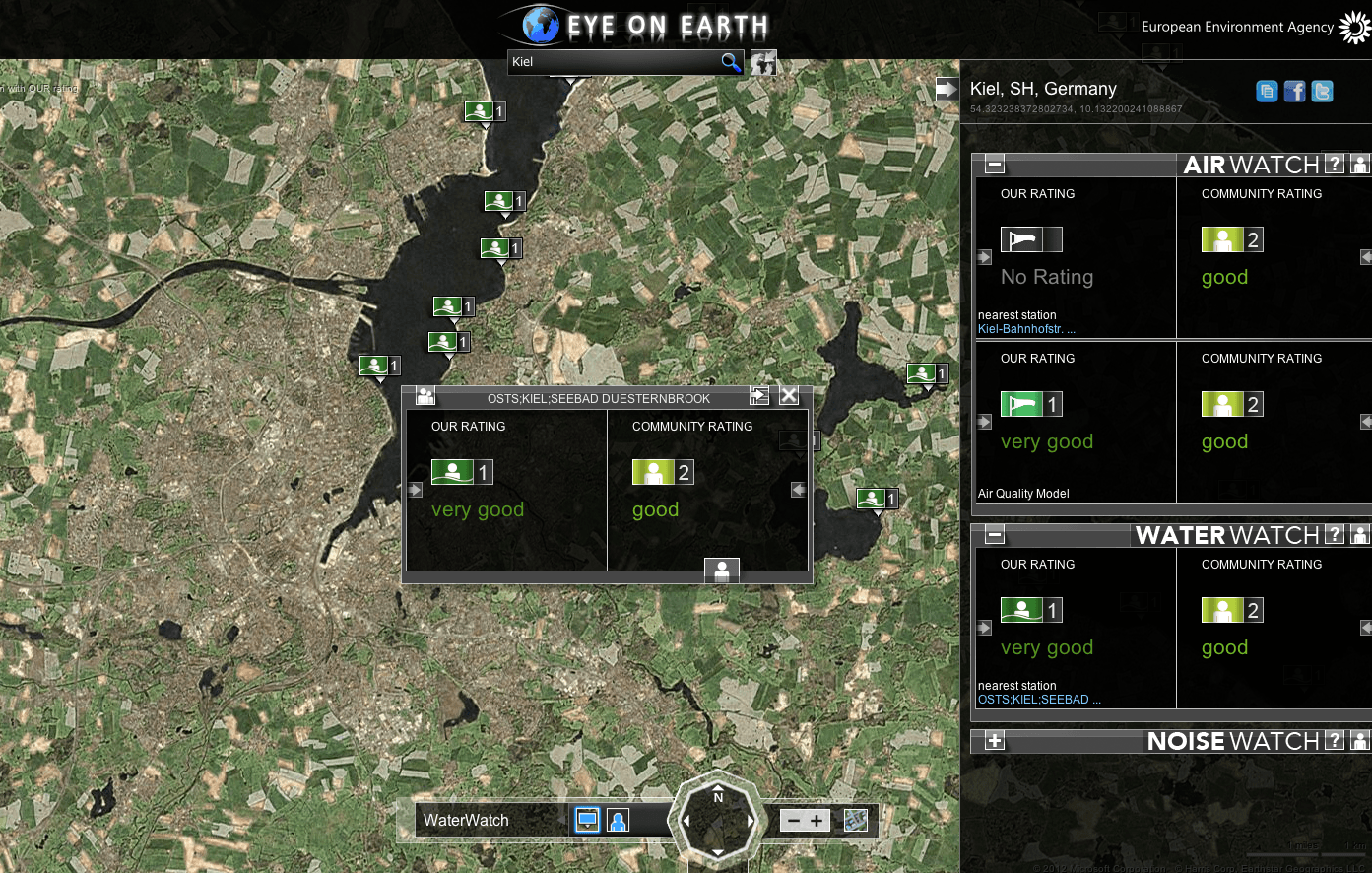Online community seeks to enable documentation of environmental conditions
Eye on Earth seeks to help the community connect with information about the quality of the environment near them, like this report from Kiel, Germany. (Screenshot from eyeonearth.org.)
Top environmental scientists are collaborating online and they want you to join them.
Welcome to Eye on Earth, an innovative network just launched by a group of partners including the Copenhagen-based European Environment Agency.
Jaqueline McGlade, director of the agency, said people join the site and are part of a club where people are sharing information about the environment.
“As a citizen, we see this as one of the fundamental ways, for the first time, that we can bring individual efforts on looking around and seeing what’s happening in the environment, alongside data that’s being collected by governments, by institutions … to give us a bird’s eye view of what’s happening in a particular part of the world,” she said.
On the website, you’re greeted with a group of what are called watchers: water watch, noise watch, air watch, etc. Clicking on any one launches a searchable map of the world. Once you choose a location to go into, you’ll start to see official government ratings on air and water quality, for example. There’s also a community rating, that’s developed based on information from the public. They can use sensors, but in general a nose or a mouth is all that’s necessary to participate.
“We have detected that over the years we’ve been running this, people — particularly those who’ve got breathing disorders — are very sensitive to the quality of air,” McGlade said. “When we ask the members of the public to rate the quality of air, we can get not only the overall picture of how good is the air, but also we can ask them about whether or not it smells clean. Is there an odor? We get a very good picture about what the quality of air really is.”
The site updates in virtually real time, meaning anyone can see a problem with the water and report it.
“The immediacy of somebody going out on a picnic and encountering a beach that’s in not very good shape means actually that that day not many people will visit the beach, if people use water watch,” McGlade said.
But in at least one area, the site turns phones into sensors: to measure noise.
“Just recording the noise of where you stand for ten seconds in terms of how intense the noise is, you then have the possibility of transmitting that into the noise watch site,” she explained.
McGlade said the noise meter has proven especially popular with politicians around the world, interested in how important noise is to public health. Her next goal is to organize a coordinated global effort to get people in all corners of the world to go out and measure noise at the same moment.
“I think you would find it very interesting,” she said. “People who are designing cities, this is a device where very simply, they can ask citizens to participate and really start to document where the noise corridors are.”
And that’s just the beginning.
“I believe that we have turned the corner through the environment’s lens, into a world where people can genuinely have reliable data and information that will inform their daily living,” McGlade said.
